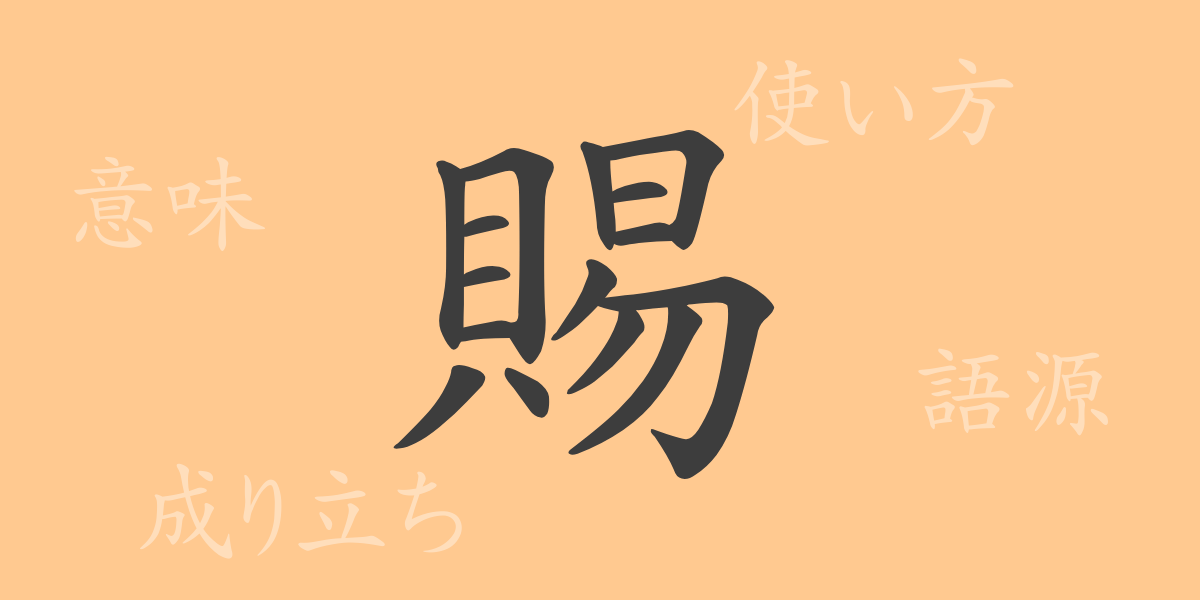The Japanese language contains deep meanings, with each character reflecting the culture and values of Japan. The commonly used kanji “賜(たまわ.る)” is no exception. This article delves into the charm of “賜(たまわ.る),” exploring its origins, meanings, usage, and related idioms and proverbs. We hope this will help readers understand the rich history and expressive power of this kanji.
Origins of 賜(たまわ.る) (Etymology)
The kanji “賜(たまわ.る)” originates from ancient China, with its roots traceable to oracle bone inscriptions. The character is composed of “示(しめ.す),” which signifies rituals or offerings to gods, and “貝(かい),” symbolizing wealth or currency. Therefore, “賜(たまわ.る)” was formed to represent the act of a deity or a ruler bestowing wealth or favor upon someone.
Meaning and Usage of 賜(たまわ.る)
The kanji “賜(たまわ.る)” means to bestow or grant something from a higher-ranking individual to a subordinate. It is often used to express receiving benefits or awards from a respected source. In Japanese, it is also used as a humble expression, where “賜る(たまわ.る)” means “to receive,” conveying humility when receiving something from someone superior.
Readings, Stroke Count, and Radical of 賜(たまわ.る)
The kanji “賜(たまわ.る)” holds significant cultural value in written Japanese, both in its form and meaning.
- Reading: The on’yomi (音読み) reading is “シ(し),” and the kun’yomi (訓読み) readings are “たまわ.る” and “たま.う.”
- Stroke count: 11 strokes
- Radical: The radical is “貝(かい),” related to wealth or currency.
Idioms, Phrases, and Proverbs Using 賜(たまわ.る)
Examples of idioms and phrases using “賜(たまわ.る)” include:
- 賜物(たまもの): A gift from a superior or a blessing from the gods.
- 賜杯(しはい): A ceremonial cup bestowed by a superior, often used in rituals.
- 賜死(しし): A death sentence given by a ruler, where the individual is commanded to end their own life.
These expressions reflect the hierarchy and etiquette in Japanese society.
Conclusion on 賜(たまわ.る)
The kanji “賜(たまわ.る)” is often seen in formal contexts or in expressions emphasizing respect and humility. Through this character, one can glimpse into traditional Japanese values and social structures. Even in modern society, its use in formal settings and documents conveys deep respect and humility. Understanding the meaning embedded in “賜(たまわ.る)” can provide deeper insights into Japanese culture.

























